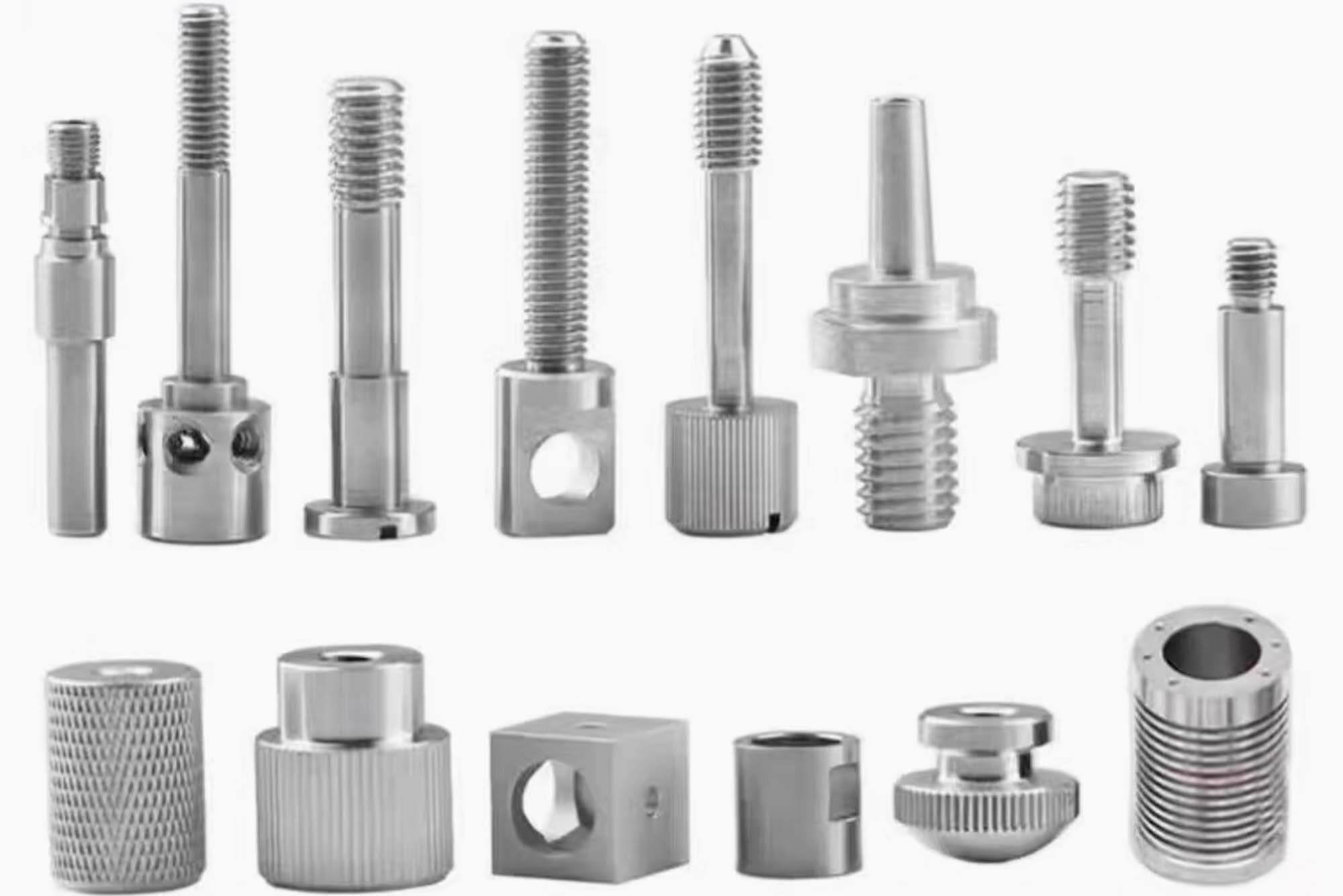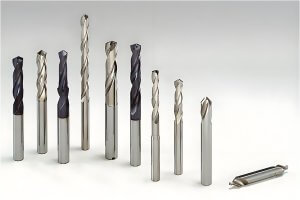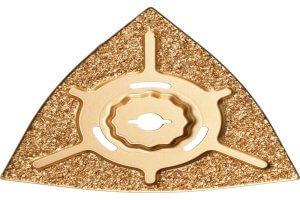How CNC Precision Redefines Types of Screws
Screws are fundamental components in countless industries, from construction to aerospace. Yet, many people overlook the role that precision plays in their design and manufacturing. As someone who has spent years working with CNC machining, I’ve seen firsthand how this technology has transformed the production of screws. It’s not just about making screws—it’s about making them better, stronger, and more reliable.
CNC precision has redefined what we expect from screws. By enabling exact thread dimensions, custom shapes, and unparalleled consistency, CNC machining ensures that screws meet the highest standards. In this article, I’ll explore the various types of screws, how CNC technology elevates their production, and why this matters for industries that rely on precision fastening solutions.
Whether you’re a professional in manufacturing, an engineer designing parts, or simply curious about how screws are made, this guide will provide a comprehensive look at the intersection of CNC technology and screw manufacturing.
Overview: What Are the Common Types of Screws?
Before diving into CNC’s role in perfecting screws, let’s first understand the basic types of screws and their uses. Screws are categorized based on their head design, threading, material, and intended application. Here’s an overview:
Common Classifications of Screws:
- By Application
Wood Screws: Designed with coarse threads to grip wood tightly.
Machine Screws: Used for fastening metal components, often requiring a pre-threaded hole or nut.
Drywall Screws: Ideal for securing drywall to wooden or metal studs.
Self-Tapping Screws: Capable of creating their threads in softer materials. - By Material
Stainless Steel: Corrosion-resistant and ideal for outdoor use.
Carbon Steel: Offers high strength but requires protective coatings for corrosion resistance.
Titanium: Lightweight and strong, used in aerospace and medical applications. - By Head Type
Flat Head: Allows the screw to sit flush with the surface.
Round Head: Provides a decorative finish for visible applications.
Hex Head: Offers superior torque and is often used in construction and machinery.
| Screw Type | Common Applications | Key Features |
|---|---|---|
| Wood Screws | Carpentry, furniture | Coarse threads, tapered tip |
| Machine Screws | Metal fastening | Fine threads |
| Deck Screws | Outdoor decking | Corrosion-resistant |
| Drywall Screws | Hanging drywall | Sharp tip, fine threads |
| Lag Screws | Heavy-duty construction | Thick shank, high strength |
These classifications demonstrate how diverse screws are and why precision is critical to their performance. Now, let’s see how CNC machining fits into this picture.
The CNC Advantage: How Technology Perfects Screw Manufacturing
CNC (Computer Numerical Control) machining has revolutionized the way screws are manufactured. Traditional methods often relied on manual processes or less precise machinery, leading to inconsistencies in thread quality and overall dimensions. CNC technology changes the game by providing:
Key Advantages of CNC in Screw Manufacturing:
- Unparalleled Precision: CNC machining achieves micrometer-level accuracy, ensuring screws fit perfectly into their intended applications. This is especially critical for machine screws and specialty fasteners.
- Custom Designs: CNC allows manufacturers to create complex screw geometries, such as unique head shapes or anti-loosening features.
- Consistency: CNC machines can produce thousands of screws with identical specifications, eliminating batch-to-batch variability.
- Material Flexibility: CNC technology can handle diverse materials, from stainless steel and aluminum to exotic alloys like Inconel and titanium.
Case Studies: Real-World Applications
- Aerospace: High-strength titanium screws are CNC-machined to exact tolerances to handle the extreme conditions of flight.
- Automotive: CNC ensures uniformity in screws used for engine assembly, where even a minor deviation can lead to failure.
- Medical Devices: Precision is critical for micro screws used in surgical instruments, and CNC machining delivers the required accuracy.
| Industry | CNC-Machined Screw Type | Key Benefits |
|---|---|---|
| Aerospace | Titanium screws | High strength, lightweight |
| Automotive | Carbon steel machine screws | Consistency, high durability |
| Medical Devices | Micro screws | Extreme precision |
With CNC technology, manufacturers can meet the most demanding requirements across industries. This sets the stage for exploring which screws are best suited for CNC machining.
Types of Screws Ideal for CNC Machining
CNC machining is particularly well-suited for manufacturing screws that demand high precision or custom specifications. Here’s a closer look at the screw types that benefit most from CNC technology:
High-Precision Screws:
- Machine Screws: Require exact thread alignment and smooth finishes to function in tight tolerances.
- Self-Tapping Screws: Benefit from CNC’s ability to create sharp, uniform threads.
Specialty Screws:
- Anti-Loosening Screws: CNC enables intricate designs, such as threads with locking mechanisms.
- Corrosion-Resistant Screws: Materials like stainless steel or titanium are machined with precision to maintain their protective properties.
Material Adaptability:
- Stainless Steel: Resistant to corrosion, ideal for outdoor and marine applications.
- Titanium: Strong and lightweight, used in aerospace and medical fields.
- Aluminum: Lightweight and cost-effective, suitable for electronics.
| Screw Type | CNC Benefits | Recommended Applications |
|---|---|---|
| Machine Screws | Precision threading | Machinery, electronics |
| Anti-Loosening Screws | Complex designs | Automotive, aerospace |
| Stainless Steel Screws | Corrosion resistance | Marine, construction |
| Titanium Screws | Lightweight, strong | Aerospace, medical devices |
| Aluminum Screws | Lightweight, affordable | Consumer electronics |
CNC machining’s versatility allows manufacturers to produce screws that meet specific industrial requirements. However, achieving this level of quality isn’t without challenges.
CNC Challenges in Screw Manufacturing and Solutions
Despite its advantages, CNC machining comes with its own set of challenges when applied to screw manufacturing. Here’s a breakdown of the common issues and how they’re addressed:
Common Challenges:
- Miniature Screws: Producing micro screws for medical or electronic applications requires extreme precision, pushing CNC machines to their limits.
- Material Hardness: Machining hard materials like titanium or Inconel can cause tool wear and increase cycle times.
- High-Volume Production: Maintaining consistency across thousands of screws demands rigorous quality control.
Practical Solutions:
- Advanced Tooling: High-precision tools and coatings extend tool life and improve machining accuracy.
- Real-Time Monitoring: CNC systems equipped with sensors can detect anomalies and adjust parameters automatically.
- Cooling Systems: Efficient lubrication and cooling systems prevent overheating and ensure smooth finishes.
CNC machining’s adaptability makes it the go-to choice for overcoming these challenges, ensuring screws meet the highest standards of quality and performance.
Real-World Applications: CNC-Machined Screws in Action
CNC-machined screws play a vital role in industries where precision and reliability are non-negotiable. Here are some notable examples:
Key Applications:
- Aerospace: Titanium screws are CNC-machined to withstand high temperatures and stress during flight.
- Automotive: Consistency in engine assembly screws ensures safety and performance.
- Medical Devices: Micro screws used in implants and surgical tools must meet strict tolerances.
Visualizing Demand:
| Industry | Screw Type | CNC Contributions |
|---|---|---|
| Aerospace | High-strength titanium | Lightweight, durable |
| Automotive | Engine assembly screws | Precision, uniformity |
| Medical Devices | Surgical micro screws | Extreme accuracy |
Through these applications, CNC machining proves indispensable in delivering screws that meet critical performance demands.
FAQ
- How does CNC machining improve thread durability?
CNC machining ensures uniform thread geometry, reducing the chances of uneven wear and stress concentration. This leads to longer-lasting screws that maintain their structural integrity under repeated use. - What types of screws are best suited for CNC machining?
High-precision screws like machine screws and specialty screws such as anti-loosening screws are ideal for CNC machining. Their requirements for exact tolerances and custom designs align perfectly with CNC capabilities. - Can CNC machines quickly customize non-standard screws?
Yes, CNC machines excel at rapid prototyping and custom production. They can produce screws with unique thread patterns, head designs, or specific material properties tailored to niche applications. - Is CNC machining cost-effective for screws?
While the upfront costs of CNC machining may be higher, the precision and consistency it provides reduce waste and rework, making it cost-effective in the long term. - What makes CNC machining unique for aerospace screws?
Aerospace screws require exact tolerances and lightweight materials like titanium. CNC ensures these screws can withstand extreme conditions, including high stress and temperature variations during flight. - How do CNC systems maintain consistency in mass production?
CNC machines use advanced monitoring systems and automated adjustments to maintain consistent quality. Real-time sensors detect and correct deviations, ensuring identical output across large batches. - Are CNC-machined screws more durable?
Yes, the precise machining process eliminates imperfections, creating screws with smoother finishes and fewer stress points, which enhances durability and reliability. - Which materials are easiest to machine using CNC?
Materials like aluminum and stainless steel are highly CNC-friendly due to their machinability and predictable cutting properties. These materials produce clean finishes and maintain dimensional accuracy. - What is the most challenging material to machine for screws?
Titanium and Inconel are challenging to machine due to their hardness and heat resistance. However, CNC machines equipped with advanced tooling and cooling systems handle these materials effectively. - Can CNC produce eco-friendly screws?
Yes, CNC machining can use recyclable materials and minimizes material waste through precise cutting. This makes it a more sustainable option for screw manufacturing. - Do CNC-machined screws work for decorative purposes?
Absolutely, CNC machining provides excellent surface finishes, making screws suitable for applications where aesthetics matter, such as furniture or consumer electronics. - How precise can CNC-machined screws get?
CNC machines can achieve tolerances as low as 0.001 inches, making them ideal for applications requiring high precision, such as medical implants or aerospace components. - Is there a size limit for CNC-machined screws?
CNC machining is versatile enough to produce both micro screws for electronics and large structural screws for construction and heavy machinery. - What industries demand the most CNC-machined screws?
Aerospace, automotive, medical, and construction industries rely heavily on CNC-machined screws due to their specific performance requirements and precision. - How long does it take to produce a custom screw with CNC?
The production time varies depending on the complexity of the screw. Simple designs may take a few hours, while intricate or highly customized screws could take several days.
Other Articles You Might Enjoy
- Unlocking the Secrets of Types of Screws: A Must-Read for Every User
Introduction: Why Knowing Types of Screws Matters Screws are one of those everyday items that most people overlook until they’re needed. But when it comes to fixing, building, or even…
- Comprehensive Guide to CNC Machining Brass Screws
Brass screws are widely used in various industrial and commercial applications due to their superior mechanical properties and attractive appearance. This article will delve into the characteristics of brass, the…
- Elevating Precision Standards through Chamfer in CNC Machining
1. Introduction: The Pursuit of Unparalleled Precision In the realm of CNC machining, precision is paramount. This section introduces the article by exploring the significance of precision in manufacturing and…
- Revolutionizing CNC Machining for Complex Aerospace Assemblies
Introduction to CNC Machining in Aerospace Assemblies Computer Numerical Control (CNC) machining represents a significant technological development playing a notable role in the creation of complex aerospace assemblies. CNC machining…
- Maximizing Precision in CNC Machining: Techniques and Tips
Importance of Precision in CNC Machining Precision is an fundamental component in the field of Computer Numerical Control (CNC) machining. It entails producing parts that are not only accurate but…
- The Role of Prototype Machining in Accelerating Product Development
Introduction: The Importance and Definition of Prototype Machining Prototype machining is a critical element advancing product development. It involves the technique of manufacturing an early model or sample, known as…
- Precision Prowess: Unveiling the Advantages of China CNC Machining
1. Introduction: The Role of Precision in Manufacturing Excellence In this introductory section, we delve into the critical role that precision plays in manufacturing and set the stage for an…






